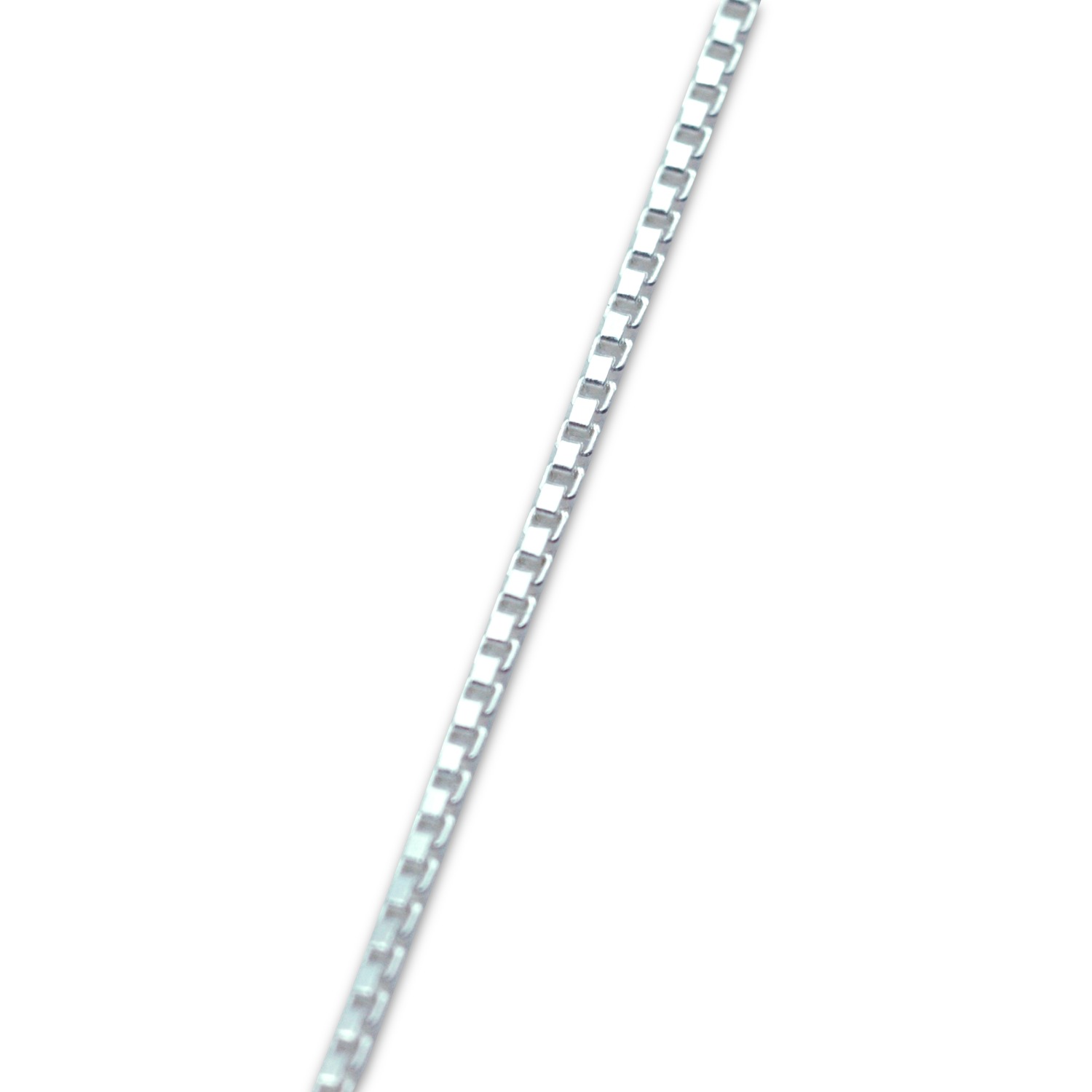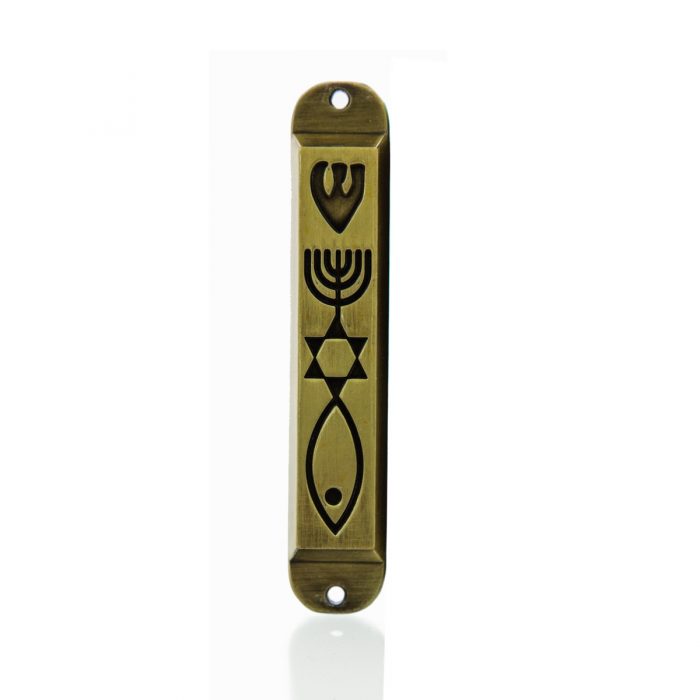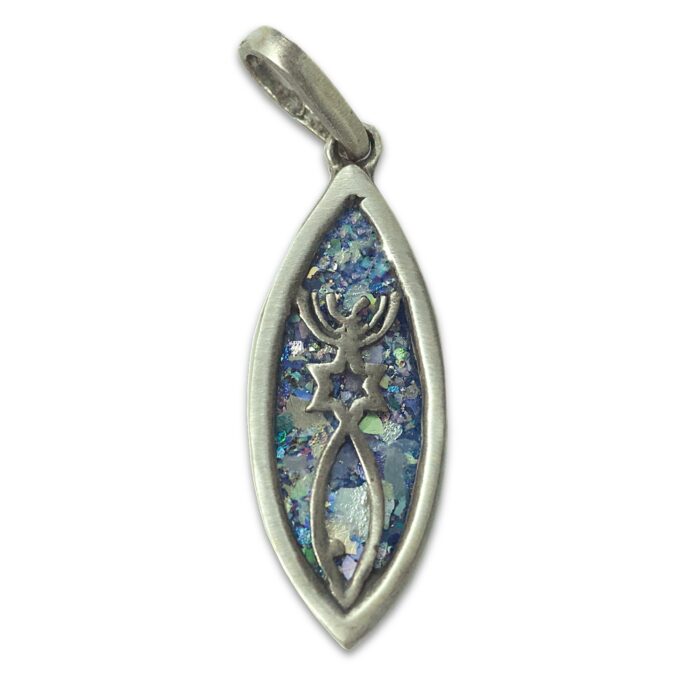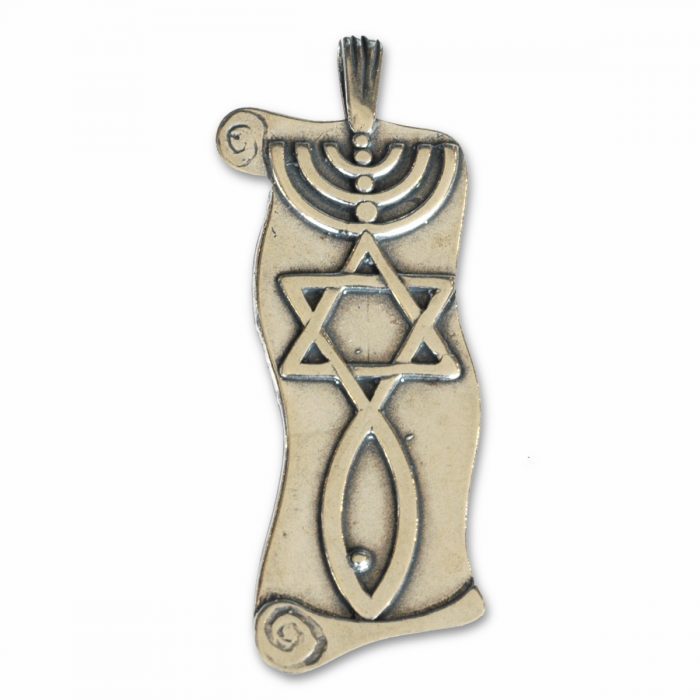Description
| Grafted-in pendant, 925 sterling silver, in rectangle with Roman Glass shard embedded in the background. |
Size (not including clasp): 2.9cm (1.2″)
“GRAFTED IN” SYMBOL
Early Messianic Symbol. This sign has reportedly been discovered, in recent years, on pottery in The Jerusalem area, believed to date from the 2nd century A.D. Some experts have concluded that it was an identifying mark of the early Jewish believers in Yeshua (Jesus) that tied together their traditions and their faith. Surely more facts will come to light as more archaeological evidence emerges.
This three-part design has become known as the “Grafted-in” symbol as it beautifully illustrates the truth of Romans 11:17-18. It has also been called “The Messianic seal of the Jerusalem Church.”
The “Menorah” (candelabra) at the top reminds us of God’s Torah and His fulfillment of the promises to Abraham in calling out the People of Israel. The Magen David (Star, or shield, of David) in the middle recalls the Nation of Israel and the establishment of the Davidic monarchy in the Land of Israel. The Fish at the bottom was a symbol for Yeshua used by the early Christians (from the Greek word for fish, “ichthys,” which was used as an acronym for “Jesus Christ, Son of God, Savior”). Here it shows that the gentile has been grafted into the Jewish root through faith in Yeshua, the Messiah of Israel–the One who fulfilled the Torah and the rightful King in the line of David. Note that the symbol is one, completely fused together. With this fusion the “Grafted-In” symbol demonstrates that Jew and gentile are truly one in the Messiah, reconciled through His atonement. In Him the middle wall of partition has indeed been broken down. It is our prayer and desire that this symbol will inspire you as you meditate on the Scriptures, which in turn will lead you to share these truths with others.
Roman Glass is an ancient glass that is found in archaeological excavation sites in Israel. These glass Shards were probably part of a vase, jug or vessel.
The Roman Empire started the mass production of this glass 2000 years ago in order to make glass vessels and utensils. It is quite common to visit biblical sites in Israel and still find beautiful pieces of this glass. These small shards are of little value to archeologists and so they are sold by the kilo to jewelers who set them into Jewelry.
The chemical process that this glass undergoes over hundreds of years in the ground gives Roman glass a very special look. With colorful flakes and specks caused by the chemical reaction due to oxidation.
Roman glass is sensitive to water, which can cause the surface of the glass to flake,
SHIPPING:
Please note that this item will be shipped separately from Israel.







